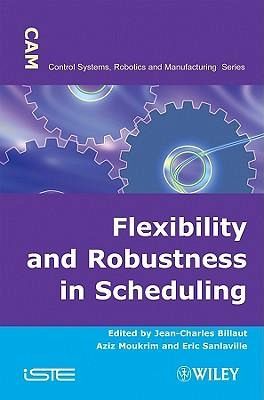
Flexibility and Robustness in Scheduling
Versandkostenfrei!
Versandfertig in über 4 Wochen
234,99 €
inkl. MwSt.
Weitere Ausgaben:

PAYBACK Punkte
117 °P sammeln!
Scheduling is a diverse research area, and scheduling problems arise from many application domains, such as production systems, logistics and computer science. Solving scheduling problems requires the use and knowledge of tools such as combinatorial optimization and exact or approximated algorithms. Flexibility is at the interface between predictive deterministic approaches and reactive or 'on-line' approaches. It exists when some information (which may not be complete or perfect) about the problem is known, which is fairly reliable and where it is likely that there will be a difference betwee...
Scheduling is a diverse research area, and scheduling problems arise from many application domains, such as production systems, logistics and computer science. Solving scheduling problems requires the use and knowledge of tools such as combinatorial optimization and exact or approximated algorithms. Flexibility is at the interface between predictive deterministic approaches and reactive or 'on-line' approaches. It exists when some information (which may not be complete or perfect) about the problem is known, which is fairly reliable and where it is likely that there will be a difference between the forecast plan and its execution. the purpose of flexibility is to provide on or more solutions tailored to the nature of the application in order to provide the ideal solution. Robustness, which characterizes the performance of an algorithm when data are subject to uncertainty, is defined as being able to be resistant to approximations and ignorance. This book focuses on the integration of flexibility and robustness considerations in the study of scheduling problems. After considering both flexibility and robustness, it then covers various scheduling problems, treating them with an emphasis on either flexibility o robustness, or both.












![Food Labeling Compliance Review [With CDROM] Cover Food Labeling Compliance Review [With CDROM]](https://bilder.buecher.de/produkte/22/22992/22992567n.jpg)